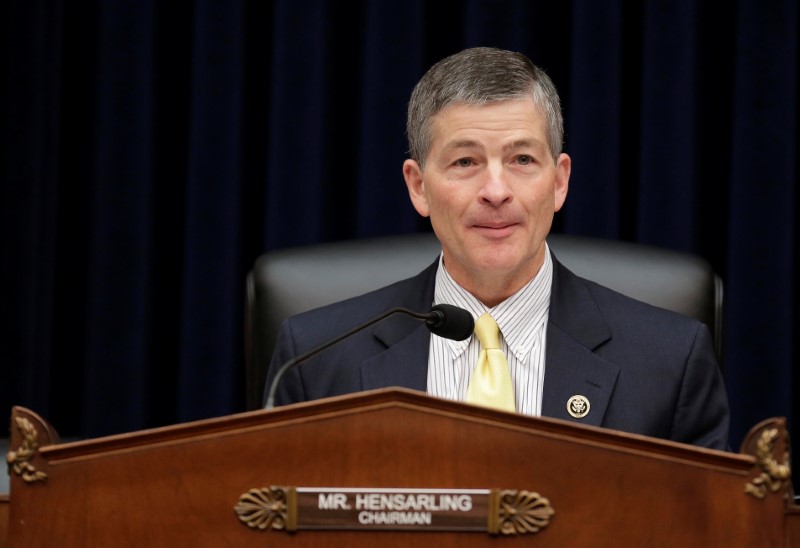By Pete Schroeder
WASHINGTON (Reuters) - The Republican chairman of a powerful House of Representatives committee said on Wednesday that he remains confident Congress will act to overhaul financial regulations "this year."
Jeb Hensarling, head of the House Financial Services Committee, told Reuters that he has assurances from the White House and congressional leaders that they want to revisit the Dodd-Frank financial reform law sometime in 2017.
"Every conversation I've had with the president, the vice president and the speaker is that this remains a this year priority," Hensarling said in an interview shortly after he addressed the American Bankers Association conference in Washington.
The Dodd-Frank law was enacted in 2010 in the wake of the financial crisis, and it implemented a host of new rules and restrictions on the financial industry.
The banking industry is hopeful that its years-long efforts to water down the legislation's requirements can gain traction now that Republicans control both chambers of Congress and the White House.
However, Hensarling told the ABA that there were major tests ahead for his efforts to significantly alter the regulatory landscape for financial institutions.
He noted that his counterpart, Senate Banking Committee Chairman Mike Crapo, a Republican, faces the task of attracting enough Democratic backers to clear legislation there.
The support of at least eight Democrats would be needed to pass any major changes to Dodd-Frank. However, Hensarling noted that some of the most prominent voices in that party, like Sen. Elizabeth Warren, have honed an acute message critical of Wall Street that makes it more difficult to muster that backing.
"He has challenges that I do not have," said Hensarling, who can move legislation through the House with solely Republican support. "Right now, I fear that a lot of Democratic senators are intimidated, frankly, by their political base."
Some banking lobbyists have expressed concern that the White House's ambitious legislative agenda, including massive reforms to health care and the tax code, could complicate their efforts to win support for broad Dodd-Frank changes in Congress.
Hensarling said he plans to re-introduce his ambitious rewrite of financial rules, the Financial CHOICE Act, sometime "soon."
But in a nod to the uphill climb his legislation faces in the Senate, he also said his committee would be considering smaller parts of the measure in separate bills as well.
"Keep hope alive; I think provisions of the CHOICE Act will be able to survive," he told the ABA conference.
Under Hensarling's bill, the largest U.S. banks would face less oversight. It would also dilute the powers of the Consumer Financial Protection Bureau.

(The story corrects year to 2017 from 2016 in headline and second paragraph)